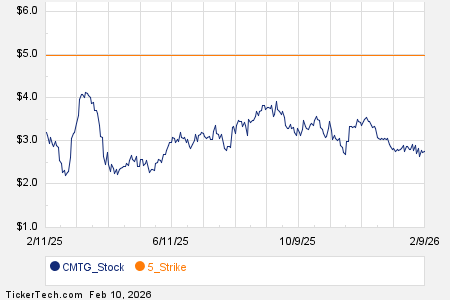Understanding the Impact of Tariffs on Retirees’ Finances
As many anticipated, President Trump introduced tariffs earlier this month, following through on his campaign promise to impose them on trade partners. The official announcement in early April triggered significant market reactions.
Stocks plummeted, economists raised their recession concerns, and uncertainty spread among the public.
Where to invest $1,000 right now? Our analyst team has revealed what they consider the 10 best stocks to buy now. Learn More »

Image source: Getty Images.
Older adults, particularly retirees on fixed incomes, may be especially worried about how tariffs could affect their finances. Many depend heavily on Social Security, and last year’s cost-of-living adjustments haven’t kept pace with rising inflation. Increased costs due to tariffs add to the anxiety during these uncertain times.
While navigating these changes can be challenging, here are some actionable strategies retirees can adopt.
1. Prepare for Increased Costs
Tariffs could increase prices on various goods, including groceries, clothing, and electronics. Therefore, it’s vital for consumers to anticipate these higher expenses and adjust their budgets accordingly.
Review your spending habits and identify areas where you can cut costs. This might involve canceling unnecessary subscriptions or considering public transportation instead of maintaining a car.
2. Be Cautious About Stocking Up
As prices may rise in the coming weeks due to tariff impacts, the temptation to stockpile essentials will grow. However, it’s essential to keep an eye on your short-term finances, especially if you are on a tight budget.
With interest rates remaining high, accumulating significant credit card debt can lead to long-term financial strain. Avoid purchasing excessive pantry supplies at potentially lower prices if it sacrifices your budget stability.
3. Explore Income Opportunities
Even without tariff-related price hikes, retirees may struggle financially. Unfortunately, conditions could worsen before they improve.
This presents a suitable time to seek additional income streams. Given the current strength of the job market, taking on a part-time or gig job could be beneficial.
If traditional employment doesn’t appeal to you, consider creative cash-raising methods. Selling valuable antiques or renting out a parking space in a high-demand area could provide some extra income.
Additionally, turning to your investment portfolio for more income is another option. Even modest savings can be redirected toward income-generating assets, such as dividend-paying stocks or bond ETFs.
It remains uncertain how tariffs will ultimately impact the U.S. economy and individual households. Retirees understandably feel anxious during this time, but proactive measures are essential to mitigate concerns over rising expenses. Evaluate spending closely, purchase essentials wisely, and strategize on boosting your income.
The $22,924 Social Security Bonus Most Retirees Overlook
If you are like most Americans, your retirement savings may be lacking. However, some lesser-known “Social Security secrets” may help enhance your retirement income.
One simple technique could yield as much as $22,924 more annually! Understanding how to maximize your Social Security benefits could pave the way for a more secure retirement. Join Stock Advisor to discover these strategies.
View the “Social Security secrets” »
The Motley Fool has a disclosure policy.
The views and opinions expressed herein are those of the author and do not necessarily reflect those of Nasdaq, Inc.






